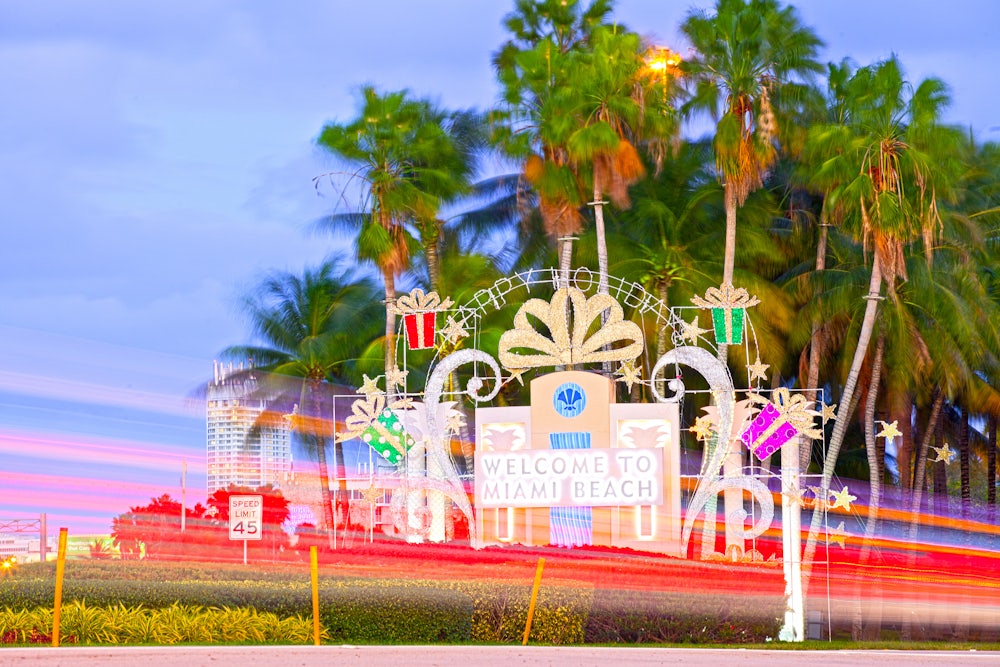A new billboard looms over the I-80 freeway in San Francisco, near Twitter’s headquarters. A blown-up screenshot of a tweet, it reads, “Thinking of moving to Miami? DM me.” While the billboard itself was reportedly paid for by a group of tech investors, the author behind the trollish tweet was Miami’s increasingly tech-thirsty mayor, Francis Suarez.
In case you haven’t heard, there’s an exodus underway from Silicon Valley as moneyed tech workers take their stock options and flee San Francisco for more hospitable climes. According to a recent report in the San Francisco Chronicle, people are indeed leaving the city—driven out by the pandemic, the rising cost of housing, taxes, and other complaints—but most of them aren’t going far. “The top six destinations,” noted the Chronicle, “were all Bay Area counties.” The only two areas outside of California that fell within the top 20 were Austin and Denver. Miami didn’t even rate.
But don’t tell that to Miami’s mayor or the tech press. According to outlets as varied as The New York Times and TechCrunch, Miami is emerging as a new tech hub, enticing millionaires and billionaires—and those who hope to join their class—with good weather, no state income tax (like Texas), beachfront properties, and a sycophantic political leadership eager to cater to techies’ needs. Financial firms from New York are also making the move; Goldman Sachs and Blackstone have opened offices there.
The face of the effort has been the energetic and incredibly online Suarez, who has even floated the possibility of paying city employees in Bitcoin. (Like Andrew Yang, there doesn’t seem to be a tech-centric idea he won’t at least entertain.) For Suarez, the campaign has been a successful form of soft power that belies what is actually a weak position: Miami is largely run by a city manager and five elected commissioners, who, along with Suarez, vote on legislation and ordinances. Vamping for tech elites, then, is one of the few ways that Suarez can assert larger political influence while also elevating his national profile.
It’s unclear whether any of this pandering will amount to more than an awkward public relations campaign as a few moguls plunk down for Florida vacation homes. Some techies may find they don’t care for the sticky Miami summer, its dangerous hurricane season, or the insurance rates that are rising in concert with the seas.
To be sure, some startups and notable tech executives, like Peter Thiel associate Keith Rabois, have already settled in South Florida, and there are clear attractions to working outside in the new work-from-home era. Miami now features startup incubators, investment funds, and even a few highly valued companies—although some of them, like the once hyped Magic Leap, have wasted billions without producing much at all. Never missing an opportunity to insert himself into a news story, Elon Musk has also talked about building underground transport tunnels—a ridiculous possibility for a flood-prone city but one that was, of course, taken seriously by Musk’s peers and Suarez, who discussed the possible project with Musk by phone.
Climate change is the unacknowledged complication in the campaign to transform Miami into a tech hub. (It went unmentioned in Nellie Bowles’s recent tour through techie Miami in the Times.) With typical irrational exuberance, the companies and tech leaders settling there seem to be either ignorant of the problem or so cosseted by money that it’s barely a concern: They’ll simply pull up stakes and move on when the rising tides start sloshing onto their pool decks. The rich know that climate change is a proletariat problem.
Miami is “the most vulnerable major coastal city in the world,” according to a scientific report published last year. Suarez claims to be committed to fighting global warming. He speaks of climate resiliency and improving infrastructure, and he has engaged with leaders in South Florida and around the world on the issue. It’s strange, then, that he has rolled out the red carpet for an industry that apparently has little strategy to deal with climate change beyond aspiring toward carbon neutrality.
More troubling, Suarez has become a vocal Bitcoin booster, seemingly holding as many meetings with crypto-millionaires like the Winklevoss twins as he does working on climate issues. Bitcoin is an environmental disaster, consuming as much electricity as some countries, but only a few weeks ago, Suarez tweeted, “The City of Miami believes in #Bitcoin and I’m working day and night to turn Miami into a hub for crypto innovation.” That a city can be a “hub” for cryptocurrencies—which tout their lack of any centralized control or infrastructure—is more than a touch ironic, but Suarez tagged some crypto celebrities to make sure they saw his post. Anthony Pompliano, a prominent Bitcoin influencer, cheered that “Miami is well on the way to becoming the Bitcoin city.” Suarez dutifully responded, “With your leadership and counsel we will.”
What even is a Bitcoin city? So far as I can tell, it’s a town that caters to tech millionaires and lauds them as innovators and job creators without expecting much in return. It’s apparently a place that, despite being ankle-deep in regular floods, mindlessly extols the potential of a power-hungry digital technology that solves precisely none of the city’s problems.
Like San Francisco, Miami has serious challenges, especially around diversifying its economy beyond real estate and tourism. But unlike San Francisco’s, the crisis in Miami is existential. Besides investing billions in restoring beaches and various resiliency measures, the city must think about whether it can even sustain its current population in the coming decades or whether it will be forced to relocate people from a shrinking landmass. What San Francisco found—and what may soon dawn on Miami officials as well—is that kowtowing to an industry that has only its own interests at heart is unlikely to help these challenges, much less advance the common good. And when Miami’s crisis becomes acute, tech millionaires won’t be the ones to help. They’ll be the first to leave.
